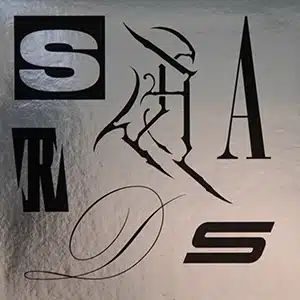
Tim Hecker’s classic albums were typified by volume, presence, and an eerie sense of desolation, creating soundtracks for landscapes devoid of humanity. His first triptych—2001’s Haunt Me, Haunt Me, Do It Again; 2003’s Radio Amor; and 2004’s Mirages, developed a vocabulary of static, crackle, and hiss to evoke images of arctic tundras and industrial cityscapes made ghostly by halogen streetlights. Harmony in Ultraviolet (2006) augmented the minimalism with a fierce undertow of heavy metal sub-bass, which, in turn, eventually culminated in the damned, doomed malevolence of 2013’s Virgins.
Ravedeath, 1972 (2011) captured the disorientation and melancholy of a world slowly subsumed by digital life’s simulacrum. In some regards, you might compare Hecker’s first decade as a hollowing out, of life as we knew it being dragged out to sea. His albums during the 2010s might be seen as the resulting tsunami, delineating the untold ways information technology was shaping and sculpting our daily existence.
With such a heady, theoretical discography and influence, it raises the question—where does he go from here? How can one make sense of a world that seems to retreat further and further from a unifying narrative every 24 hours, especially without repeating himself, becoming a pastiche of what made him relevant in the first place?
On Shards, Tim Hecker seems to have arrived at the same conclusion of many novelists, poets, and pop songwriters. Sometimes you can be your most honest and personal when you put your words in someone else’s mouth.
Shards is a short, sweet collection of outtakes of the soundtrack work Hecker has favored since the beginning of the pandemic. Rather than the shock-and-awe pyroclastic force of Harmony in Ultraviolet or the ominous ambience of Virgins, each of Shards‘ seven tracks is a subtler, more delicate meditation on the world and our place in it. It’s a welcome reminder that Hecker’s music is not and has never been dependent on gimmicks to be deadly effective.
Shards begins with the nearly post-rock weightlessness of “Heaven Will Come”, recalling Godspeed You! Black Emperor/A Silver Mt. Zion’s more celestial moments with its twinkling meteor show synth casting soft fairy light through a haze of white noise and surface rumble. “Morning (Piano Version)” is largely un-processed, on the other hand, instead built around open-ended acoustic piano chords, endlessly cycling and full of longing. “Monotone 3” feels almost entirely synthetic, by contrast, sculpting tinkling grand piano and warm, breathy oboe into a marshland of swaying cattails and eerie ghost song.
Don’t take this to mean Shards is Hecker going full chamber music, though. “Sars Requiem” is still every bit as haunting and haunted as Hecker’s earliest albums while “Joyride Alternate” is some of the most sparse and restrained music of his career, with little more than a pulsing bass drone and some aqueous harmonics. Finally, things round out with “Sunset Key Melt”, which is still patient and subdued while sounding slightly more optimistic, like sunrise burning away a creeping morning mist.
Although, understandably, listeners remain in awe of Hecker’s sound design and creative use of volume and texture—which frequently feels more like a sculptor taking a chisel to marble than a composer placing notes on a staff—it’s a pleasure and a relief to hear Hecker in a more human mode, even if the sounds are meant to accompany moody images of empty water or a dimly-lit exorcism sequence. It’s a reminder that Tim Hecker will find a way to continue to express the beauty and terror of modern living no matter what format he’s working in.

